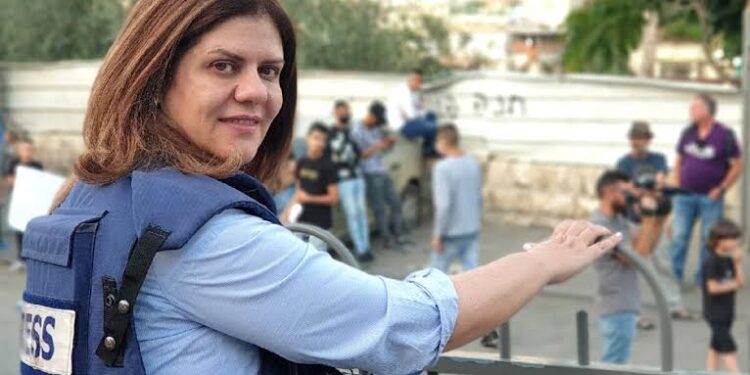One year has passed since the tragic and premature death of Shireen Abu Akleh, a journalist working for Al Jazeera.
Now, for the first time, the Israeli military and the Israel Defence Forces have offered their apologies.
This long-awaited apology comes a year after Akleh was fatally shot while covering an Israeli military operation in the occupied West Bank’s Jenin region.
Ali Al Samudi, another journalist, was also shot during the incident.
During an interview with CNN, Rear Adm. Daniel Hagari, the IDF’s chief spokesman, expressed remorse, saying, “I think it’s an opportunity for me to say here that we are very sorry for the death of Shireen Abu Akleh.”
This apology from the IDF is significant, as it acknowledges responsibility for the killing of the esteemed journalist.
Last year, the IDF had admitted the “high possibility” that she was shot by an Israeli soldier.
Hagari emphasized the importance of journalism in a democracy, stating, “She was a journalist, a very established journalist. In Israel, we value our democracy and in a democracy, we see high value in journalism and in a free press. We want journalists to feel safe in Israel, especially in wartime, even if they criticize us.”
In recent news, the Committee to Protect Journalists (CPJ) released a report highlighting the lack of accountability taken by the Israeli military for the deaths of at least 20 journalists over the past two decades.
According to the CPJ, out of the 20 journalists killed by Israeli military fire since 2001, 18 were Palestinian.
Shockingly, no one has ever been held accountable or faced charges for these tragic deaths.
Last September, the IDF acknowledged the “high possibility” that Abu Akleh’s death was the result of accidental Israeli fire.
However, the Military Advocate General’s Office announced that it did not intend to pursue criminal charges or prosecutions against any of the soldiers involved.
In response to the CPJ report, the IDF expressed regret for any harm caused to civilians during their operations.
They emphasized the importance of press freedom and the professional work of journalists, stating that they do not intentionally target noncombatants and only resort to live fire as a last resort.
The apology from the Israeli military marks a significant step towards recognizing the value of journalists’ lives and the importance of their work.
It is hoped that this gesture will contribute to a safer environment for journalists in the region and foster a culture of accountability moving forward.

































